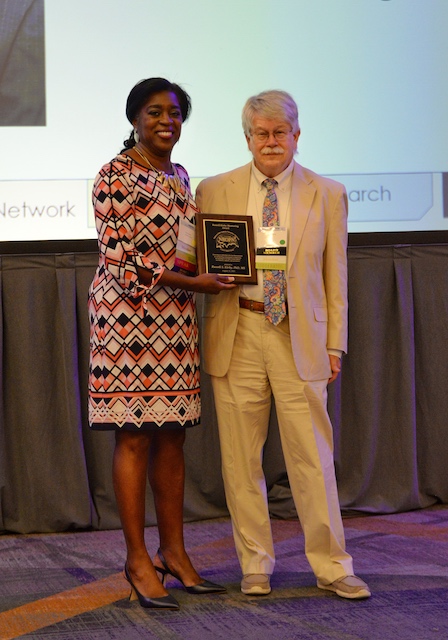Mentoring award is named after Dr. Russell Kirby—who becomes its first-ever recipient
Dr. Russell Kirby, a USF Distinguished Professor and perinatal epidemiology expert at the USF College of Public Health, has been honored with a mentoring award that bears his name.
Kirby became the first-ever recipient of the Russell S. Kirby Mentoring Award, presented by the National Birth Defects Prevention Network (NBDPN).
“The award,” says the NBDPN, an international group of individuals dedicated to birth defects surveillance, research and prevention, “is given to an individual who has demonstrated an outstanding commitment to mentoring, advising and building supportive environments for colleagues in the field of birth defects surveillance, research and prevention.”

The NBDPN said it presented the award in Kirby’s honor for his years of supporting the growth of birth defects programs, as well as for mentoring students, staff and other professionals.
“I was very honored to receive the award, which I did not expect,” Kirby said. “I knew that the new award was being created and would be named in my honor, but I did not anticipate I would be its first recipient.”
Kirby estimated he’s mentored “hundreds” of students and professionals on birth defects—their prevalence and prevention—over the years.
“While at USF, in addition to approximately 20 maternal and child health concentration students each year, I have sat on 36 dissertation and thesis committees, serving as major/co-major professor for 21 students,” Kirby noted. “I have also mentored numerous faculty members at USF and other universities around the country, and I have worked with program staff at birth defects surveillance programs in many states. I helped establish programs in Rhode Island, Delaware, Minnesota and Oregon, and I worked closely on projects with colleagues in Colorado, Texas, Michigan and New York. This has been in addition to my leadership for the Birth Defects Surveillance Program at USF.”
Kirby said he feels an obligation to his peers and his profession to act as a mentor to those interested in the study of birth defects.
“Mentoring is what it’s all about,” he said. “Just as others supported me in my education and early career, I feel I owe it to pay it back. Mentoring is very rewarding and generates lifelong connections and friendships that transcend our daily work.”
Story by Donna Campisano, USF College of Public Health
